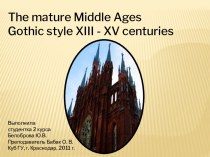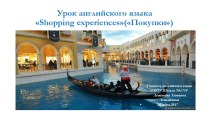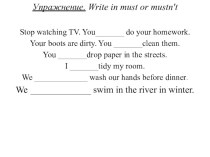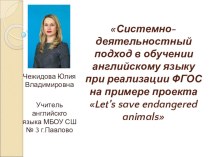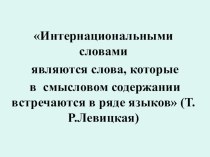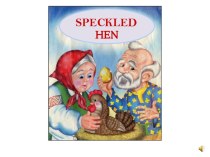- Главная
- Разное
- Бизнес и предпринимательство
- Образование
- Развлечения
- Государство
- Спорт
- Графика
- Культурология
- Еда и кулинария
- Лингвистика
- Религиоведение
- Черчение
- Физкультура
- ИЗО
- Психология
- Социология
- Английский язык
- Астрономия
- Алгебра
- Биология
- География
- Геометрия
- Детские презентации
- Информатика
- История
- Литература
- Маркетинг
- Математика
- Медицина
- Менеджмент
- Музыка
- МХК
- Немецкий язык
- ОБЖ
- Обществознание
- Окружающий мир
- Педагогика
- Русский язык
- Технология
- Физика
- Философия
- Химия
- Шаблоны, картинки для презентаций
- Экология
- Экономика
- Юриспруденция
Что такое findslide.org?
FindSlide.org - это сайт презентаций, докладов, шаблонов в формате PowerPoint.
Обратная связь
Email: Нажмите что бы посмотреть
Презентация на тему Andrew Marvell
Содержание
- 2. “Music, the mosaic of the air.”
- 3. Andrew Marvell(31 March 1621 – 16 August
- 4. Marvell was born in Winestead-in-Holderness, East Riding
- 6. THE forward youth that would appear Must
- 7. During the period of increasing tensions leading
- 8. In 1657, Marvell joined Milton, who by
- 10. After the RestorationOliver Cromwell died in 1658.
- 11. From 1659 until his death in 1678,
- 12. Marvell died on 16 August, 1678 of
- 14. Скачать презентацию
- 15. Похожие презентации
“Music, the mosaic of the air.”
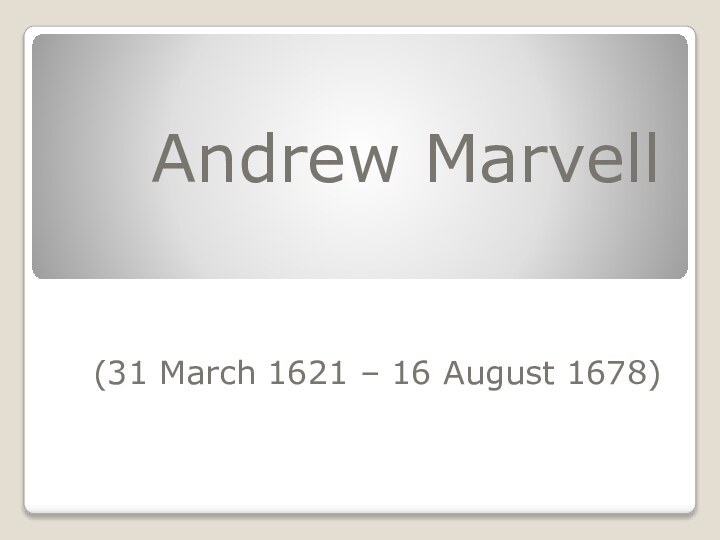

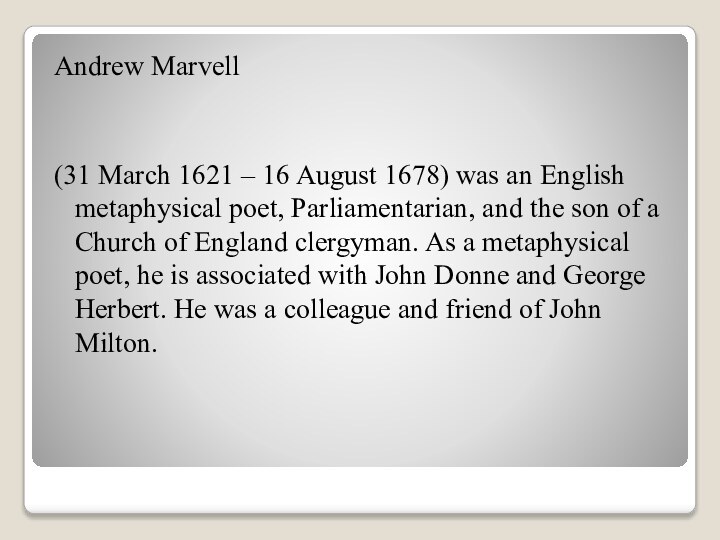
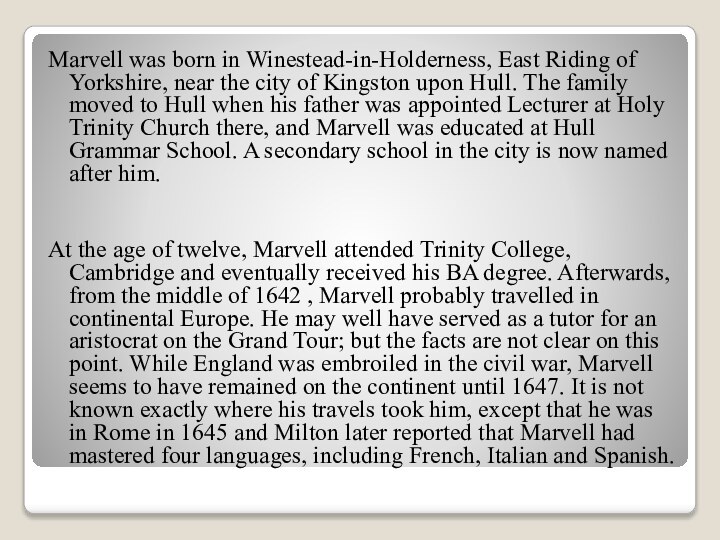
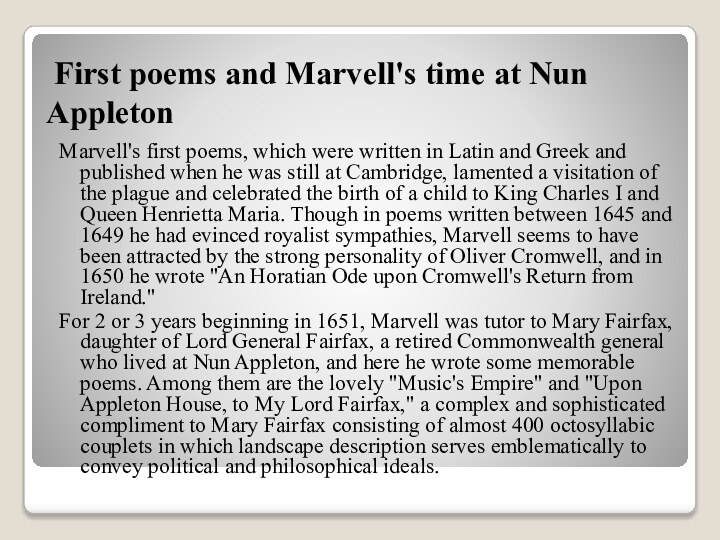

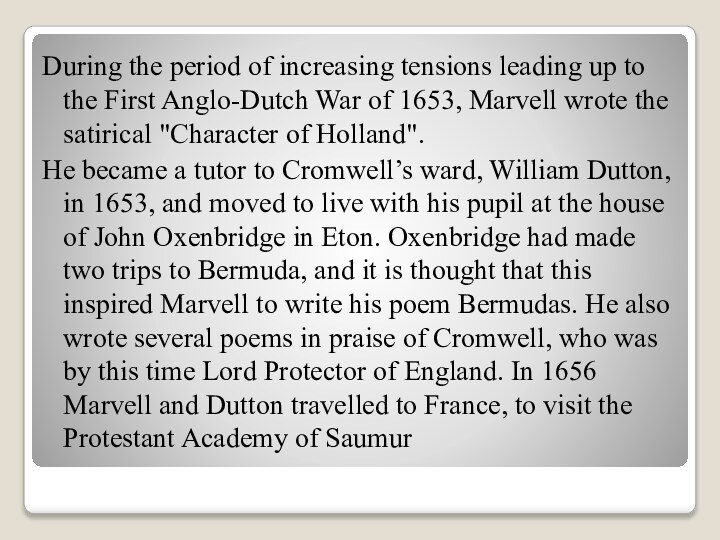
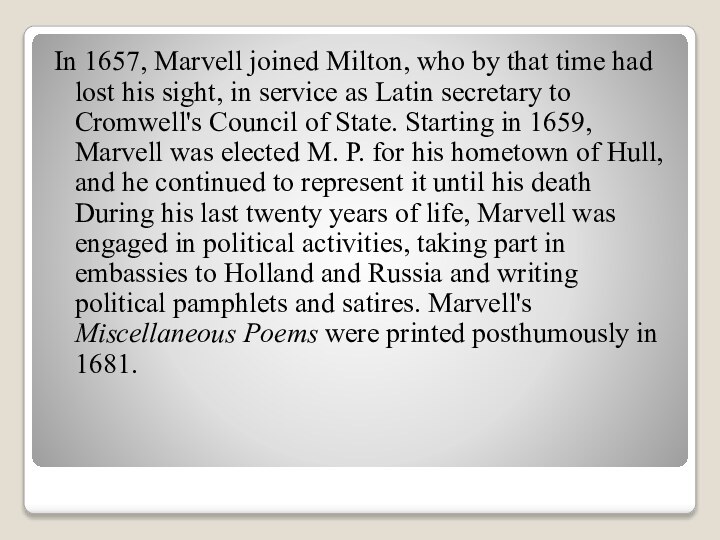
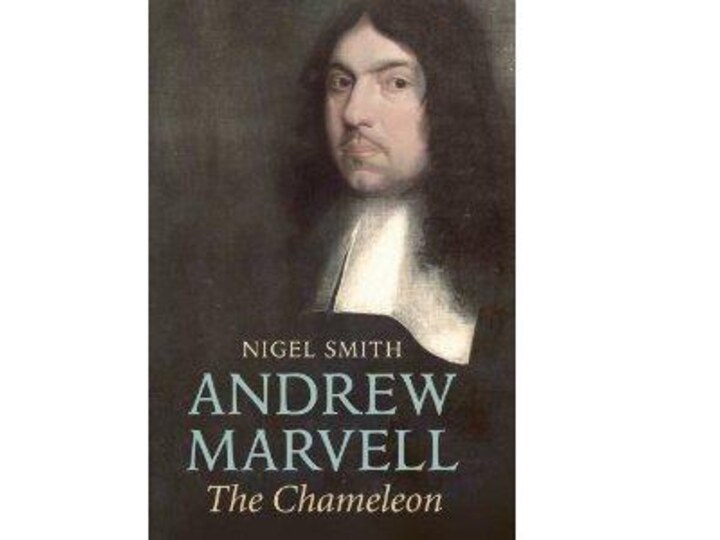
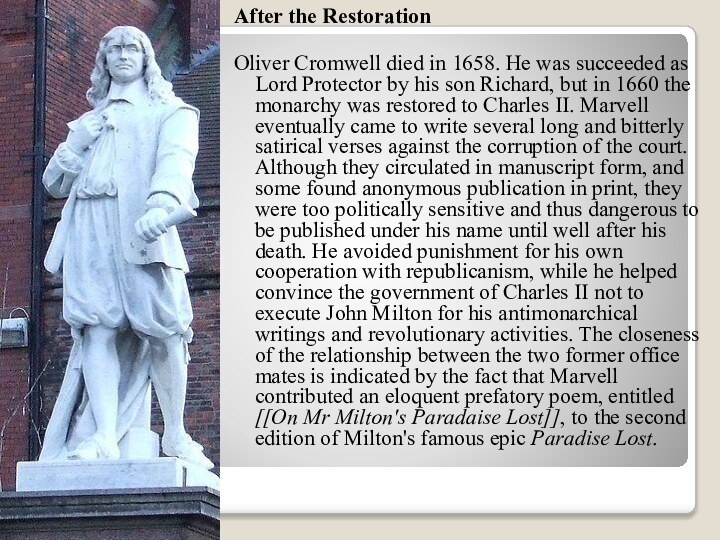

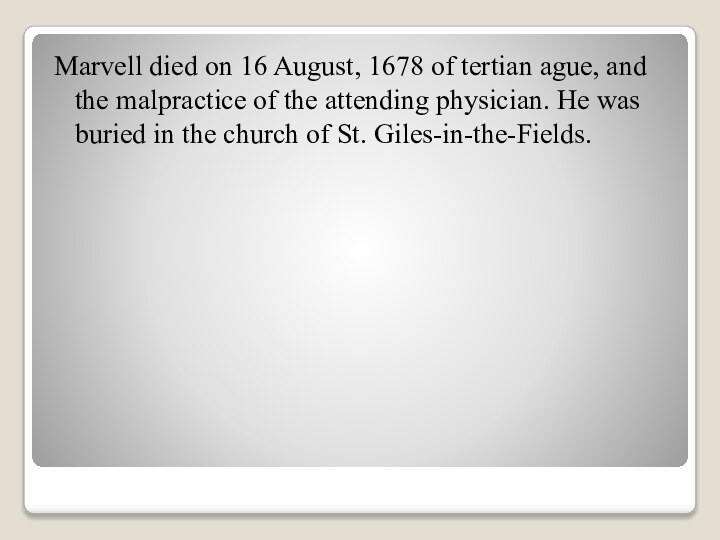
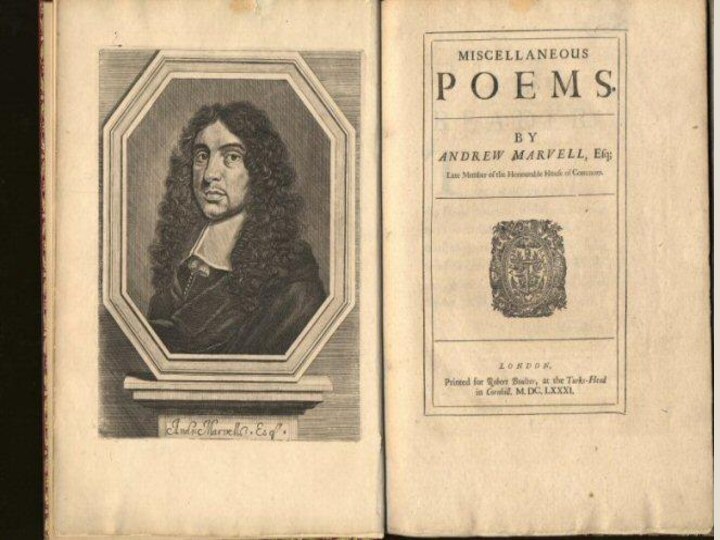

Слайд 4 Marvell was born in Winestead-in-Holderness, East Riding of
Yorkshire, near the city of Kingston upon Hull. The
family moved to Hull when his father was appointed Lecturer at Holy Trinity Church there, and Marvell was educated at Hull Grammar School. A secondary school in the city is now named after him.At the age of twelve, Marvell attended Trinity College, Cambridge and eventually received his BA degree. Afterwards, from the middle of 1642 , Marvell probably travelled in continental Europe. He may well have served as a tutor for an aristocrat on the Grand Tour; but the facts are not clear on this point. While England was embroiled in the civil war, Marvell seems to have remained on the continent until 1647. It is not known exactly where his travels took him, except that he was in Rome in 1645 and Milton later reported that Marvell had mastered four languages, including French, Italian and Spanish.
Слайд 5 First poems and Marvell's time at Nun
Appleton
Marvell's first poems, which were written in Latin and
Greek and published when he was still at Cambridge, lamented a visitation of the plague and celebrated the birth of a child to King Charles I and Queen Henrietta Maria. Though in poems written between 1645 and 1649 he had evinced royalist sympathies, Marvell seems to have been attracted by the strong personality of Oliver Cromwell, and in 1650 he wrote "An Horatian Ode upon Cromwell's Return from Ireland."For 2 or 3 years beginning in 1651, Marvell was tutor to Mary Fairfax, daughter of Lord General Fairfax, a retired Commonwealth general who lived at Nun Appleton, and here he wrote some memorable poems. Among them are the lovely "Music's Empire" and "Upon Appleton House, to My Lord Fairfax," a complex and sophisticated compliment to Mary Fairfax consisting of almost 400 octosyllabic couplets in which landscape description serves emblematically to convey political and philosophical ideals.
Слайд 6 THE forward youth that would appear Must now forsake
his Muses dear, Nor in the shadows sing His numbers languishing. 'Tis
time to leave the books in dust, And oil the unused armour's rust, Removing from the wall The corslet of the hall.Слайд 7 During the period of increasing tensions leading up
to the First Anglo-Dutch War of 1653, Marvell wrote
the satirical "Character of Holland".He became a tutor to Cromwell’s ward, William Dutton, in 1653, and moved to live with his pupil at the house of John Oxenbridge in Eton. Oxenbridge had made two trips to Bermuda, and it is thought that this inspired Marvell to write his poem Bermudas. He also wrote several poems in praise of Cromwell, who was by this time Lord Protector of England. In 1656 Marvell and Dutton travelled to France, to visit the Protestant Academy of Saumur








